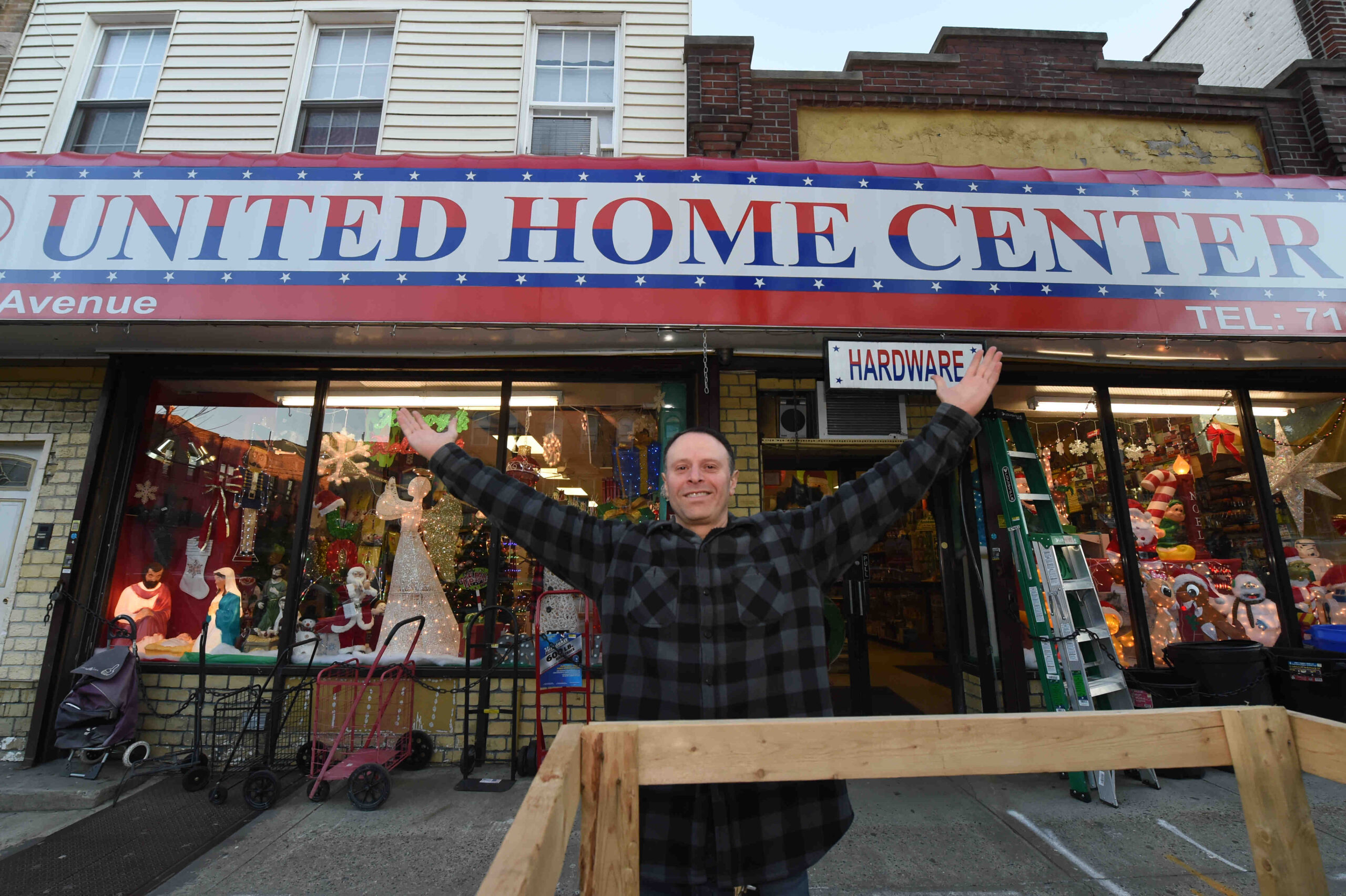Hard Stop on Signage Fees as City Council Secures New Awning Act

ebrooklyn media/Photo by Todd Maisel
Owners of mom and pop shops throughout the city can sleep a little easier now that the City Council and the mayor have formalized a new Awnings Act which will waive fees which could be damaging for some smaller business owners.
The agreement, just finalized by Brooklyn Councilmember Rafael Espinal and Mayor Bill de Blasio, comes on the heels of an emergency rally held earlier this month on the steps of City Hall.
The presser spotlighted small businesses which have been blindsided by the Department of Buildings (DOB) for sign and awning violations that, politicians like Espinal claim, haven’t been enforced at this volume in years.